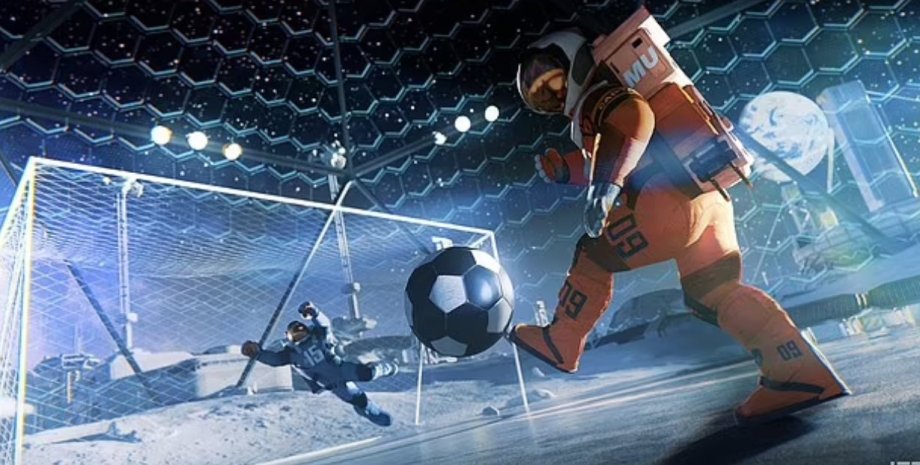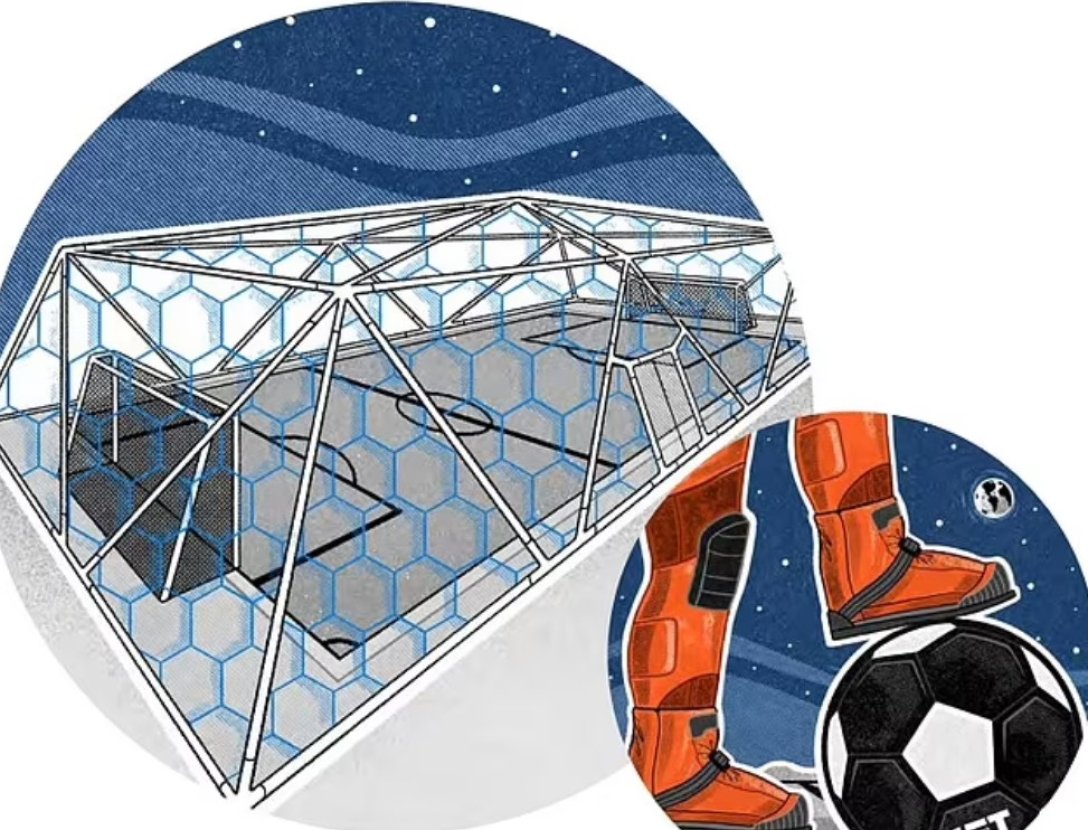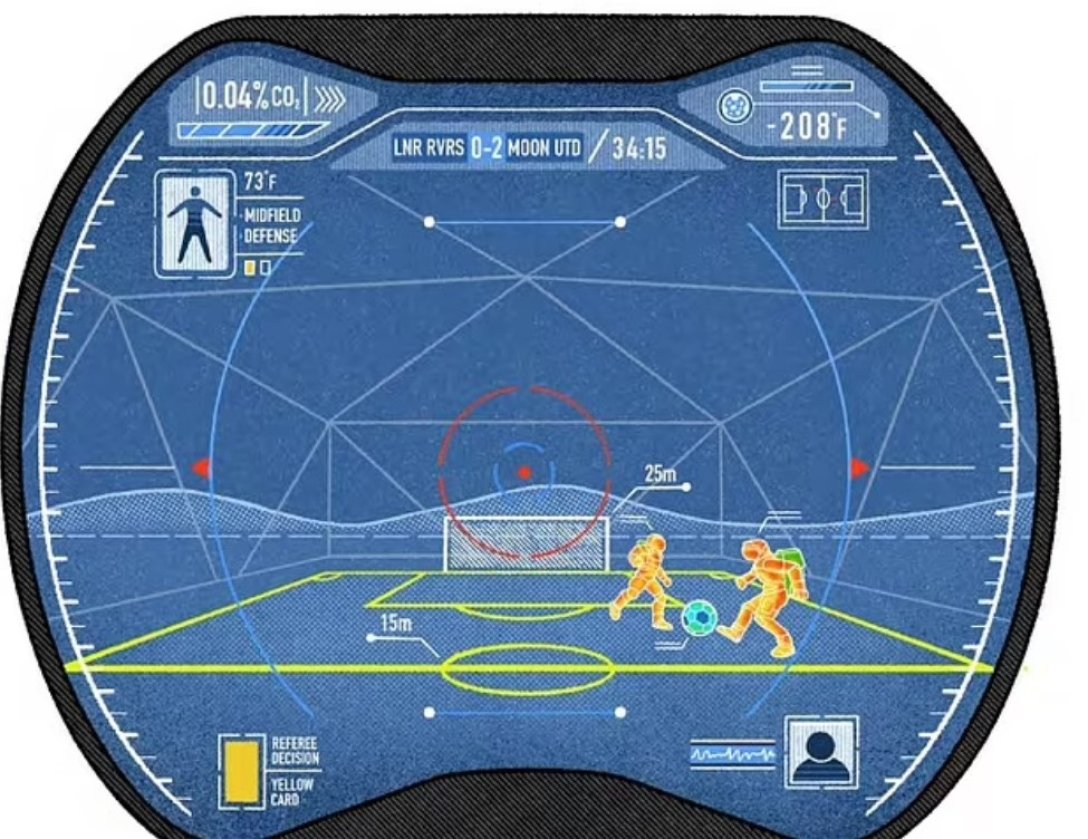
Halves of 10 minutes and a ball that is not inflated with air. Football on the Moon will look completely different from what we are used to seeing on Earth.
Scientists from the UK’s Institute of Engineering and Technology believe that the first football match could take place on the Moon in 12 years, as a permanent human base will have been established by then. And now we need to start thinking about what astronauts will do in their free time from lunar exploration. For example, they could play soccer. But it will be a completely different game, writes the Daily Mail.
One of the most popular sports on Earth, soccer, may migrate to the Moon along with earthlings, scientists believe. The upcoming landing of NASA astronauts on our satellite in 2025 will usher in a new space era, which means that a permanent base may already appear on the Moon within the next decade. But the astronauts will be able to relax not only inside this base, but also use their free time to play football.
Scientists from the Institute of Engineering and Technology believe that the first football match could take place on the Moon as early as 2035, and they have described what they expect it to look like.
First, you need to create a soccer field and this can be done by altering the lunar regolith with lasers, which will turn a certain area of the moon into a flat, smooth surface. Next, this field needs to be covered with a special sealed structure, which will be the first stadium on the Moon. While the astronauts will definitely not go into space during the game, the ball can, so the structure will be completely closed. According to scientists, the stadium will be several times smaller than a regular football stadium on Earth, and the same goes for the football field.
Football match on the moon
Experts believe that the game will consist of four halves of 10 minutes each with 20-minute breaks. This is necessary so that players can rest and check the operation of their equipment and suits. After all, safety should come first. At the same time, the number of players should be significantly reduced.

Of course, the players won’t be running around the field in traditional uniforms, because they will be wearing spacesuits. These spacesuits will resemble those used by astronauts during the Apollo missions, but not as bulky. The suit will be equipped with an oxygen tank, a communication system, and temperature control devices.
Also, according to the scientists, there will be a cooling and heating system inside the suits so that the game participants always feel comfortable. The suit will also have a special system for collecting sweat. The suits will also have increased flexibility, which will allow normal movement of arms and legs.

Photo: Daily Mail
What will a soccer ball look like on the Moon?
The balls will still be round, but 2 times larger than a regular earthly soccer ball. They will be in strictly black and white color so that they can be clearly distinguished on the field surface. But there will be no air inside the balls because the pressure difference on the Moon will almost certainly cause the ball to burst. Instead, experts assume that they will have a new generation of aerogel sponge filler that ensures normal bounce back during impact.
And who are the judges?
As such, there will be no live judges, experts say. The role of the referees will be played by a special program that will use cameras to monitor what is happening on the field. All the information will be sent to the players, and they will be able to see in their helmets who received a yellow or red card and why.

